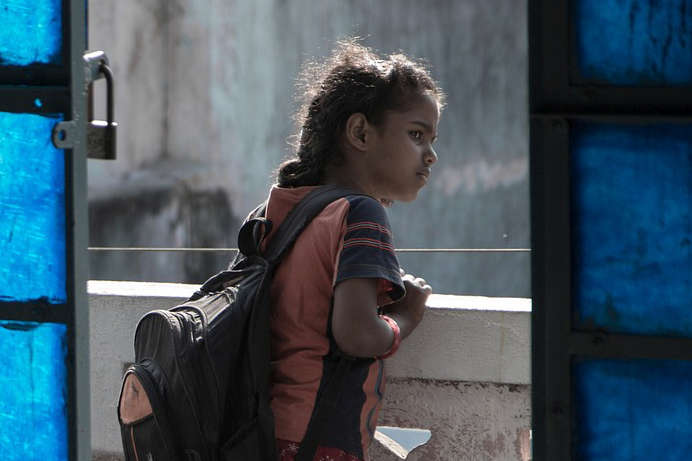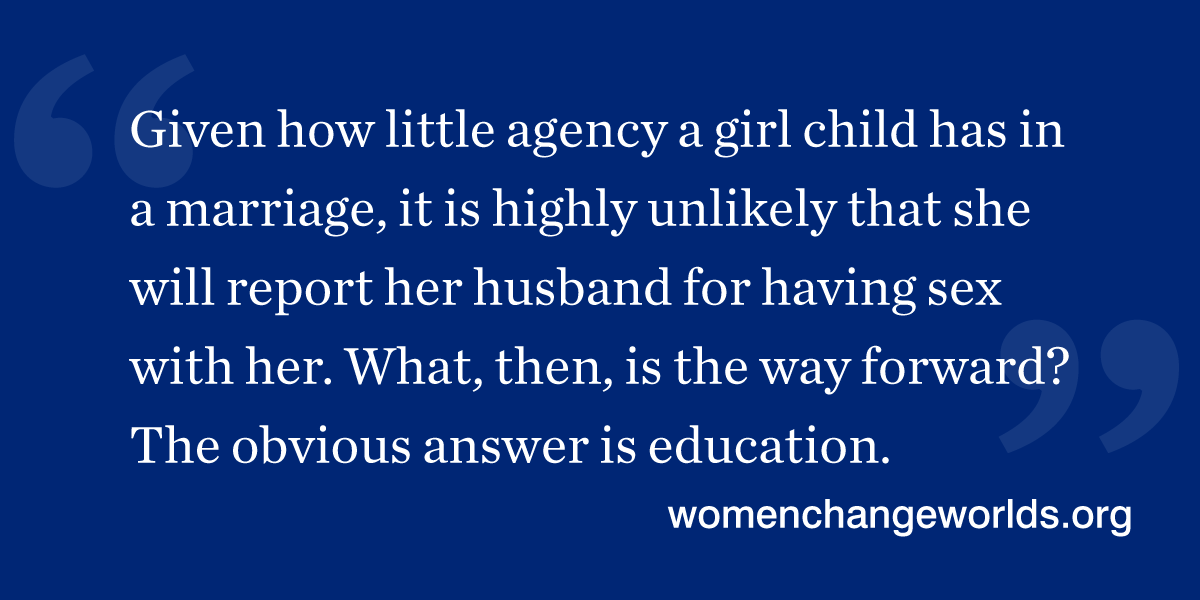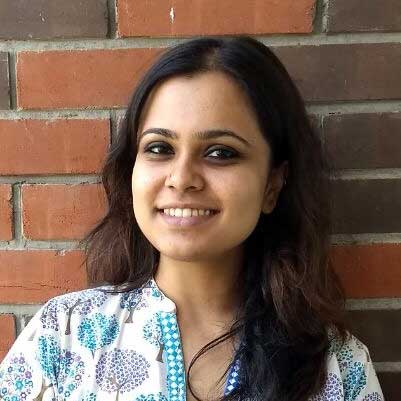 The Supreme Court of India ruled last week that sex with one’s wife under 18 years of age will be deemed as rape for which the husband can face up to 10 years of imprisonment. This judgement, being hailed as “landmark” by Indian media, irons out a major discrepancy in the Indian law: while the age of consent for women in India is 18, an exception in the Indian penal code allowed men to have sex with their wives between 15-18 years of age regardless of their consent (Indian law does not acknowledge marital rape).
The Supreme Court of India ruled last week that sex with one’s wife under 18 years of age will be deemed as rape for which the husband can face up to 10 years of imprisonment. This judgement, being hailed as “landmark” by Indian media, irons out a major discrepancy in the Indian law: while the age of consent for women in India is 18, an exception in the Indian penal code allowed men to have sex with their wives between 15-18 years of age regardless of their consent (Indian law does not acknowledge marital rape).
While it is indeed a laudable step on part of the Indian judiciary that called out the “artificial distinction” between a married girl child and an unmarried girl child to be “arbitrary and discriminatory”, the judgement puts the spotlight on the issue of child marriage itself. A recent study conducted by IndiaSpend -- a journalism non-profit -- found that nearly 12 million Indian children are married before the age of 10, a mind-boggling figure that shows that child marriage continues to be a real and persistent threat in the country. We also know that early marriage can be disastrous for a girl’s sexual and reproductive health. According to Girls Not Brides, complication in pregnancy and childbirth is the leading cause of death in girls aged 15-19 globally. Considering that, this indeed is a landmark judgement which will now present a barrier to men wanting to consummate their marriages with their underage brides. However, the moment one begins to think about the wider socio-cultural context that child marriages take place in, the judgement sounds wildly optimistic and impracticable.
 It is common knowledge that there is a link between lower levels of education and early marriage. The IndiaSpend research also found that as many as 5.4 million married under the age of 10 were illiterate, and 80 percent of them were female. Given that we are talking of a largely illiterate female population that is subjected to child marriage, what are the chances of them seeking legal recourse when faced with the prospect of forced consummation of marriage? Child marriage is also very often a discreet affair, one that is deeply entrenched in patriarchal values and traditions, and wary of the State machinery. Given how little agency a girl child has in a marriage, it is highly unlikely that she will report her husband for having sex with her. What, then, is the way forward? The obvious answer is education. It has always been known that educating girls and boys is one of the most effective ways of eradicating child marriage. Even the government of India acknowledged it when it said that child marriage is a reality in India due to economic and educational inequalities. However, what our government really meant was that given that child marriage is a reality, we might as well allow the consummation of marriage before the legal age of consent because “the institution of marriage must be protected”.
It is common knowledge that there is a link between lower levels of education and early marriage. The IndiaSpend research also found that as many as 5.4 million married under the age of 10 were illiterate, and 80 percent of them were female. Given that we are talking of a largely illiterate female population that is subjected to child marriage, what are the chances of them seeking legal recourse when faced with the prospect of forced consummation of marriage? Child marriage is also very often a discreet affair, one that is deeply entrenched in patriarchal values and traditions, and wary of the State machinery. Given how little agency a girl child has in a marriage, it is highly unlikely that she will report her husband for having sex with her. What, then, is the way forward? The obvious answer is education. It has always been known that educating girls and boys is one of the most effective ways of eradicating child marriage. Even the government of India acknowledged it when it said that child marriage is a reality in India due to economic and educational inequalities. However, what our government really meant was that given that child marriage is a reality, we might as well allow the consummation of marriage before the legal age of consent because “the institution of marriage must be protected”.
The government’s paranoia regarding the institution of marriage, as if it were more endangered than the Bengal tiger, is preposterous. And I don’t mean to be facetious about this. The government’s delusion is both amusing and scary; it has used this defence not only to argue for lower age of consent in child marriages but also against criminalizing marital rape which is an ongoing battle in the courts. In fact, in defence of not criminalizing marital rape, the government said that India could not follow the lead of western countries as “India has its own unique problems due to uneven literacy, economic and social diversity." Granted that India is an extremely complex terrain for the implementation of any such law, it cannot be used as an excuse for maintaining the status quo. Besides, it is not the government’s job to uphold the institution of marriage and what they call the Indian family system, based on the assumption that sexual consent is implicit in marriage and a nod to women’s autonomy will destabilize the institution. This is important because unless the government gets its priorities right, it will not be able to focus on levelling the “uneven” playing field that it acknowledges as the cause of social problems, also required for the effective implementation of women-friendly laws.
 Nandita Dutta is deputy manager at the Centre for Studies in Gender and Sexuality (CSGS) at Ashoka University in India. CSGS is a partner of the Wellesley Centers for Women.
Nandita Dutta is deputy manager at the Centre for Studies in Gender and Sexuality (CSGS) at Ashoka University in India. CSGS is a partner of the Wellesley Centers for Women.


